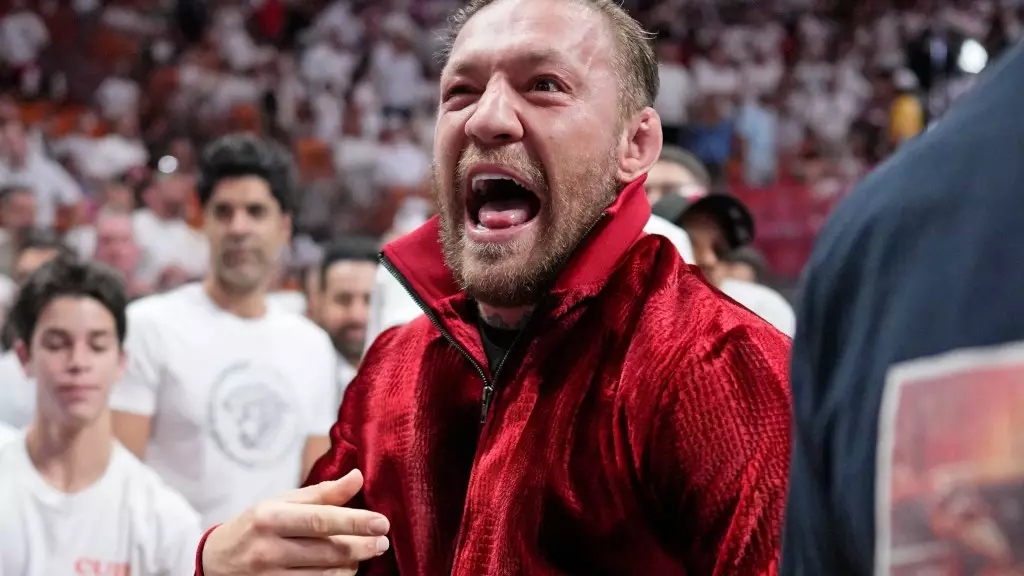Conor McGregor’s anticipated return to the UFC has been shrouded in controversy and disappointment, particularly following the recent cancellation of his scheduled bout against Michael Chandler. This fight was meant to mark McGregor’s comeback after a three-year hiatus, but an injury—specifically, a broken pinky toe—forced him to withdraw. Although Chandler has shown remarkable patience since their time filming “The Ultimate Fighter,” he has opted to fight Charles Oliveira instead, leading many to speculate about McGregor’s commitment and readiness for return.
McGregor’s infrequent presence in the octagon raises questions about his focus and dedication to the sport. Renowned former fighter Ben Askren did not mince words when expressing his concerns regarding McGregor’s lifestyle choices. Askren openly stated that he sees McGregor as struggling with addiction, purportedly exacerbated by his wealth and fame, allowing him to evade the harsh consequences of his behavior. This perspective points to a troubling trend: the perception of McGregor as a fighter whose off-the-mat antics overshadow his in-ring abilities.
Askren’s assertion that McGregor’s life outside the cage has affected his career resonates with fans and analysts alike. According to Askren, McGregor appears more invested in a party lifestyle than in preparing for competitive fights. Videos of McGregor enjoying his wealth often surface, leading to public speculation regarding his commitment to the sport. This portrayal isn’t merely conjecture—it’s a narrative that McGregor himself has fed into with inconsistent fight announcements and social media posts that suggest a lack of urgency regarding his imminent return.
The volatility surrounding McGregor’s career trajectory has also cast a shadow over the UFC as an organization. Dana White, the promotion’s president, has voiced skepticism about McGregor’s possibilities for a return in 2024, reflecting a growing concern about the fighter’s well-being and focus. When a fighter of McGregor’s caliber is absent for prolonged periods, it not only impacts his career but also the potential matchups and revenue for the organization itself.
As McGregor claims readiness and adherence to drug testing protocols, the reality remains that actions speak louder than words. The question lingers: Can McGregor rediscover the drive that propelled him to the top of the sport? His statements convey confidence, yet they starkly contrast with the actions that his contemporaries undertake to prepare for bouts. Askren’s call for Chandler to move on was not merely a commentary on a single matchup; it represented a broader critique of McGregor’s status in an increasingly competitive environment.
Whether McGregor can reclaim his position within the UFC rests not solely on physical ability but also on mental fortitude and prioritization of his career. Fighters truly dedicated to the sport maintain a disciplined approach to training and preparation—attributes that appear to be slipping away from McGregor as he grapples with personal challenges. Ultimately, the fighter’s legacy hangs in a delicate balance, wedged between his past accolades and the uncertain road ahead.

